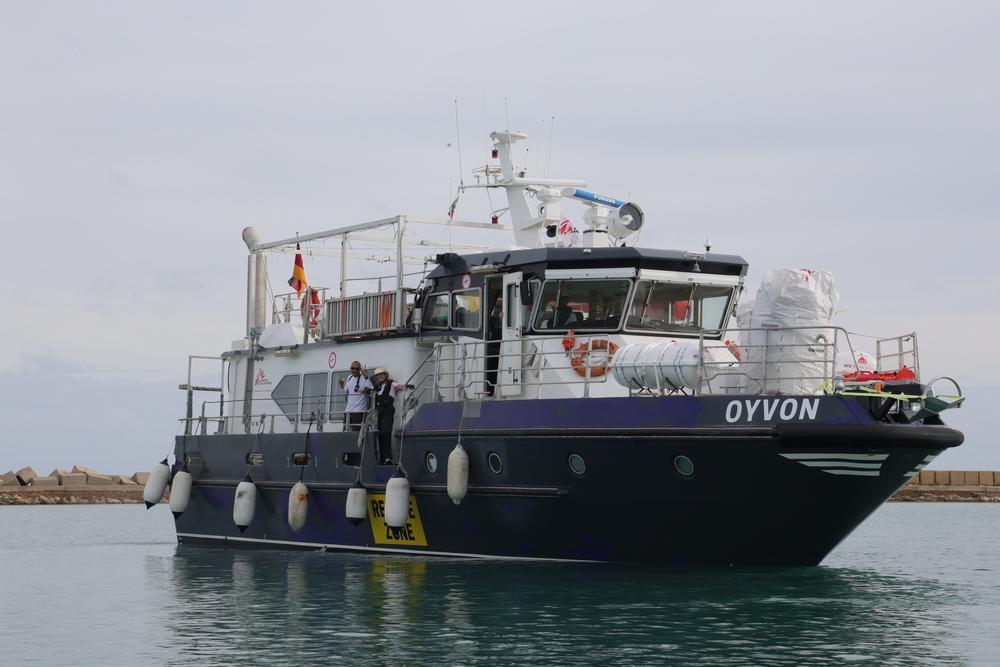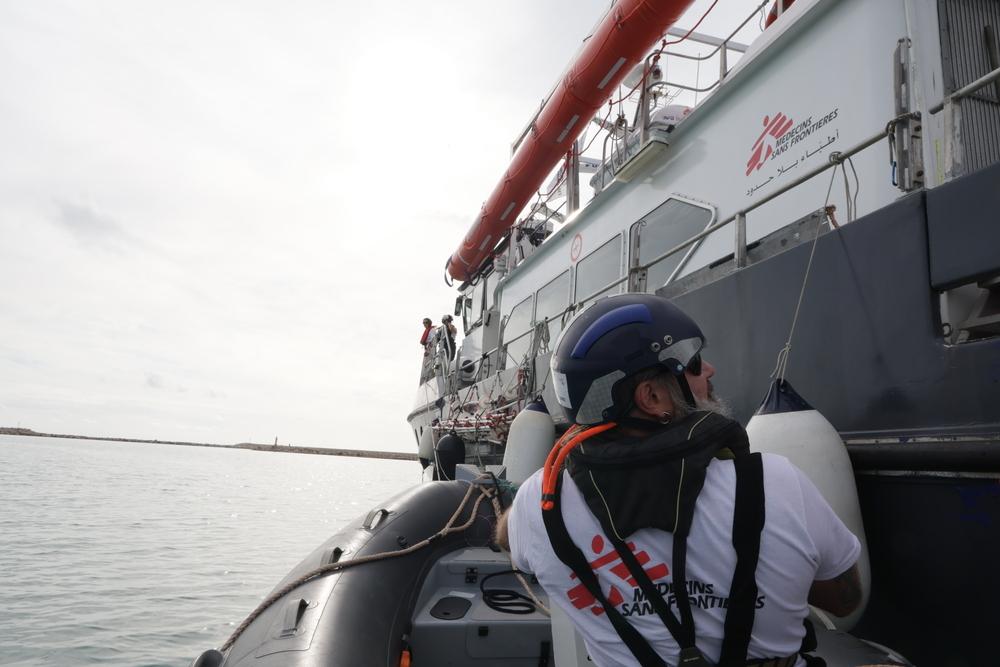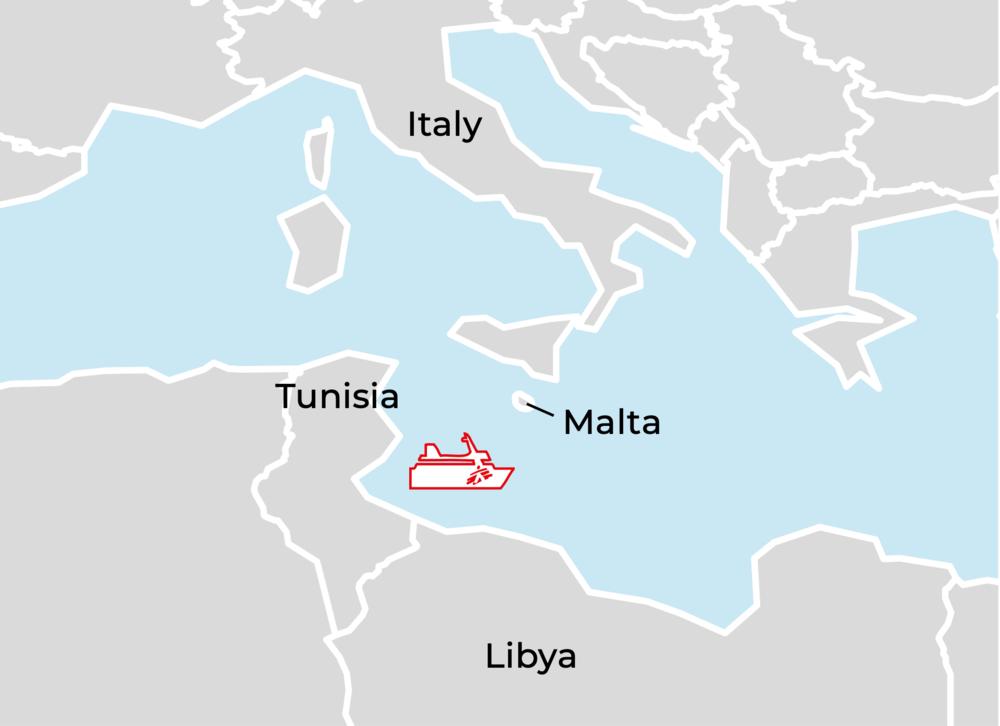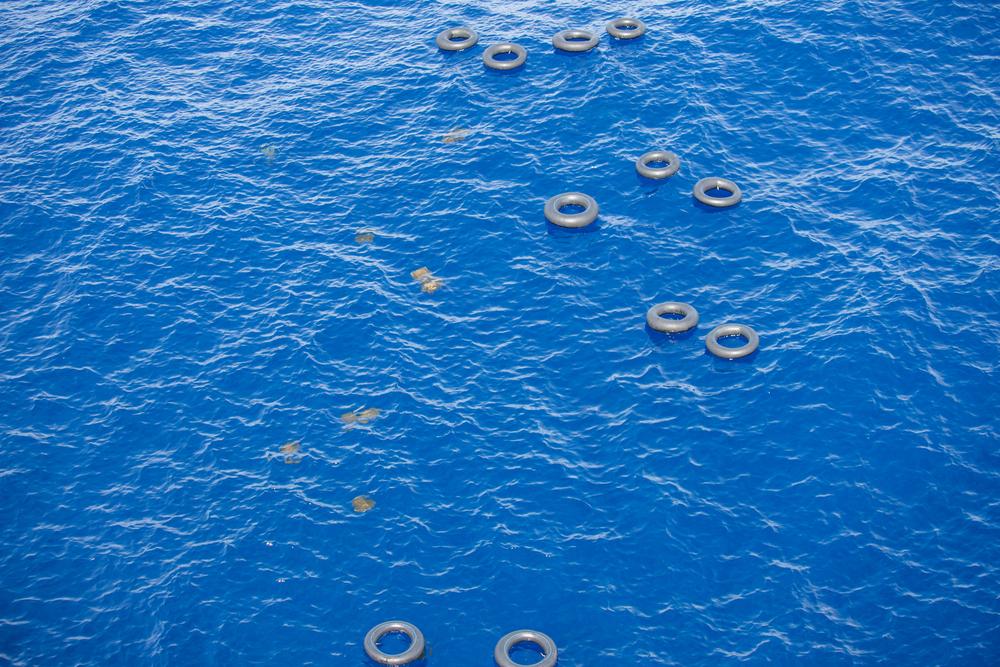Mediterranean Sea – Search and Rescue (SAR)
MSF relaunches search and rescue operations in the Central Mediterranean
Nearly a year after the forced shutdown of its last rescue ship, the Geo Barents, Doctors Without Borders has resumed its search and rescue (SAR) operations in the central Mediterranean aboard a new ship, the Ovyon.
Increasingly punitive laws targeting search and rescue operations in the Mediterranean had forced the MSF ship to cease operations in 2024.
In 2025, Doctors Without Borders returned to sea, deploying its new rescue ship, the Oyvon – which means “hope for the island” in Norwegian – refitted and equipped to conduct SAR operations on one of the world’s deadliest migration routes.
The Oyvon had previously operated as an ambulance ship in Norway.


In 2024, more than 1,690 people died or went missing while attempting to cross the Central Mediterranean Sea. – the second-highest number of deaths since 2017.
At the same time, interceptions and forced returns to Libya and Tunisia increased, revealing the real reason behind the hailed decrease in arrivals in Italy.
The cycles of exclusion and abuse at Europe’s external borders were further entrenched by the formal adoption of the European Union’s Pact on Migration and Asylum, which came into force in June 2024.
In the same month, the MSF team on board the Geo Barents recovered the bodies of 11 people after a nine-hour-long search operation at sea, once again witnessing first-hand the impacts of violent border practices and the deliberate inaction of European states in the Central Mediterranean Sea.

In 2024, our medical team treated survivors for the effects of the harsh conditions at sea, such as hypothermia, dehydration, and fuel burns, which occur when petrol mixes with sea water and comes into contact with the skin. The team also treated people for the physical and psychological consequences of the extreme violence they had experienced, including wounds, physical disabilities, psychological conditions, and sexually transmitted infections.
The impact of the punitive Italian laws and practices on humanitarian activities at sea was to dramatically reduce the number of people the Geo Barents was able to rescue in 2024, as the ship was blocked in port for almost four months. As a result, MSF was forced to suspend search and rescue operations in December.
Our activities in 2024 —
people rescued at sea
outpatient consultations
people treated for sexual violence
The closure of safe and legal options for people to reach Europe pushes them further into migrant smuggling networks. In Libya, the detention of migrants and refugees is a thriving business of kidnapping and extortion.
On December 13, 2024, MSF was forced to cease operations on its search and rescue vessel, the Geo Barents, which had been operational since 2021. Italian laws and policies made it impossible to continue this operational model. MSF has initiated a process to evaluate the best operational model in this challenging environment and is committed to resuming search and rescue activities.
MSF reaffirms its firm commitment to people on the move, particularly those undertaking the dangerous journey across the Central Mediterranean, a route where more than 31,000 people have died or gone missing since 2014.
This orchestrated withdrawal of search and rescue vessels from the Central Mediterranean deprives survivors fleeing the horrific violence in Libya of lifesaving assistance. This is the conclusion of an advocacy report published by MSF in June 2025. Entitled "Deadly Manoeuvres: Obstruction and Violence in the Central Mediterranean," the report draws on operational and medical data, as well as survivor testimonies collected by MSF teams aboard the Geo Barents in 2023 and 2024.
MSF also provides assistance to people held in Libyan detention centers and those arriving in Europe.
